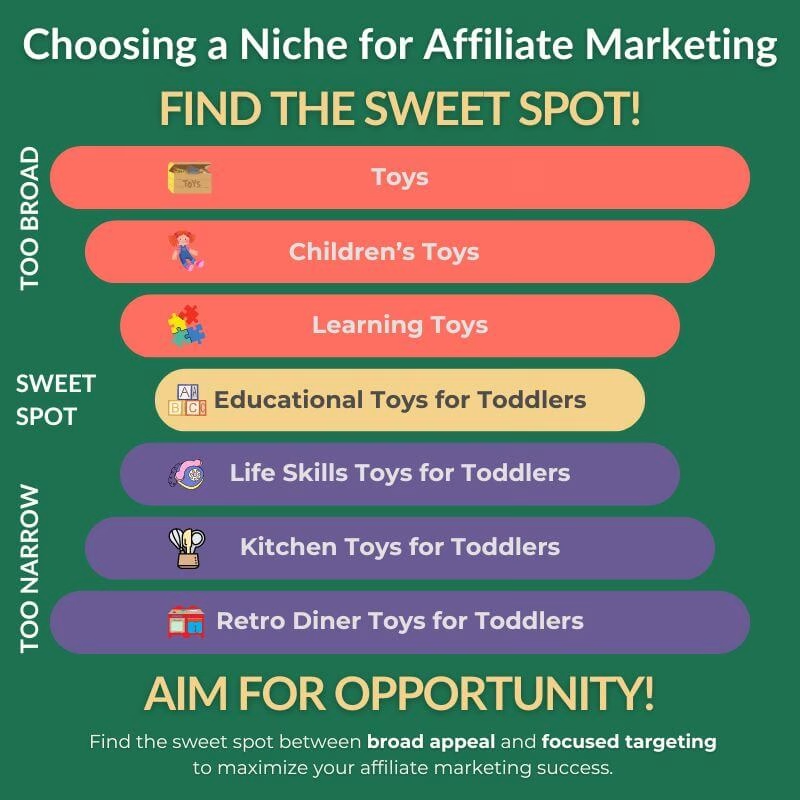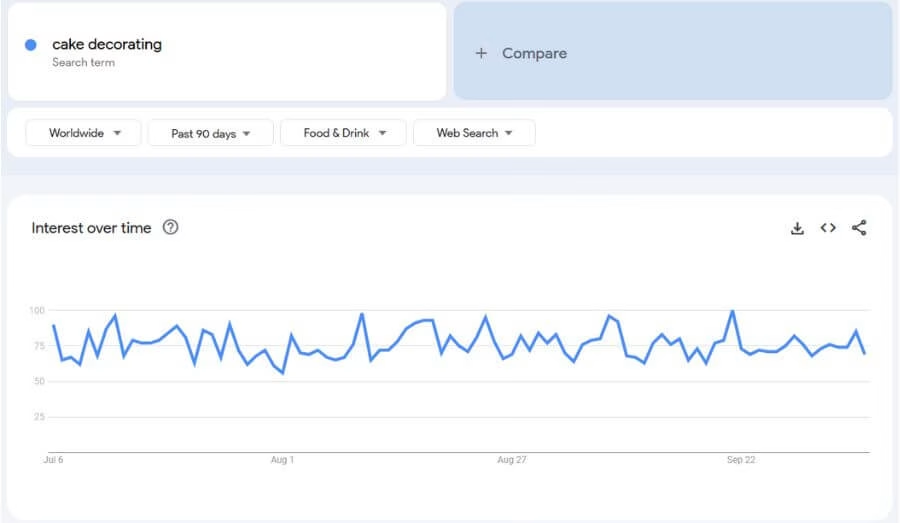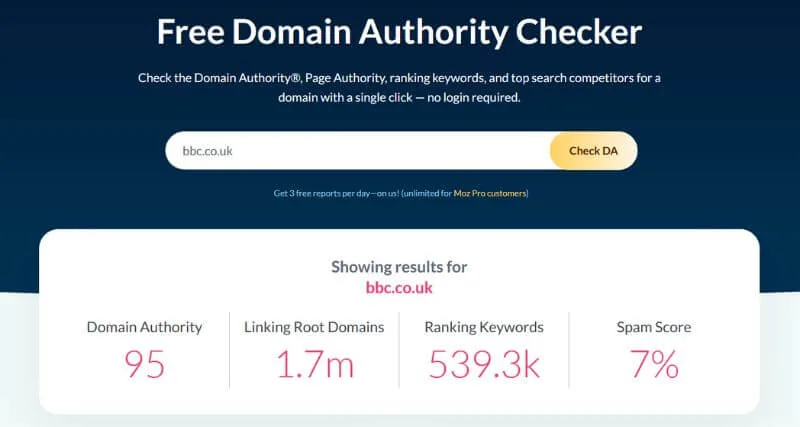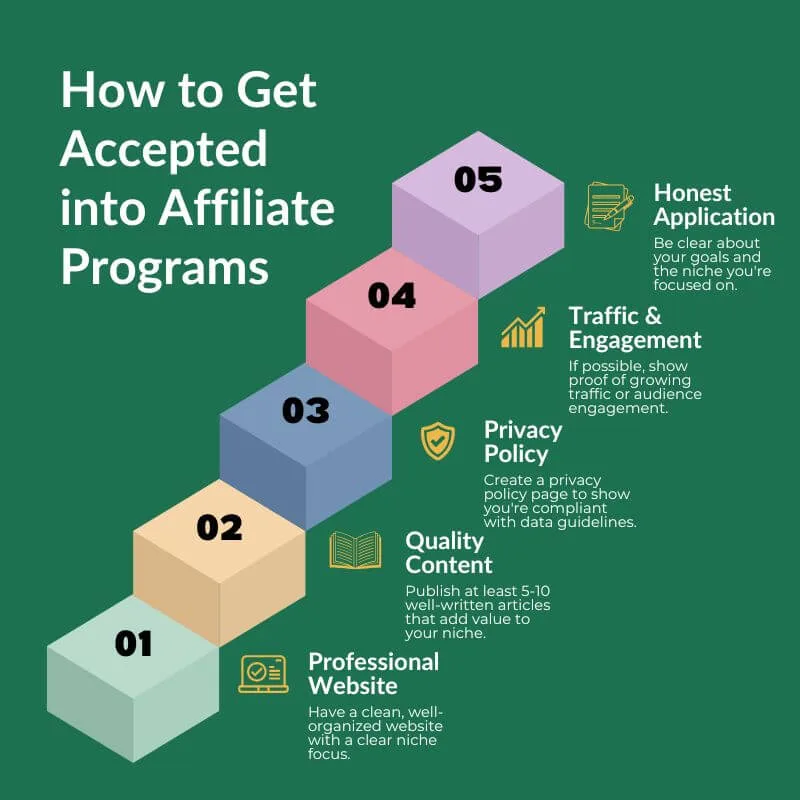Last updated on January 8th, 2025 at 08:30 pm
Choosing a niche for your affiliate marketing business is one of the most important decisions you’ll make as a beginner. Short- and long-term success depends on selecting a niche that fits your interests and has solid market demand. The right niche shapes your audience, the content you create, and the products you promote.
In this post, we’ll guide you through actionable steps on how to choose a profitable niche for affiliate marketing. By the end, you’ll have the tools to confidently select your niche and take the first steps toward success. We’ll also explore some profitable niche ideas to help you start on the right path.

What is a Niche in Affiliate Marketing?
A niche is a small segment of a bigger market. It’s the topic or industry you focus on with a specific target audience in mind. Instead of trying to appeal to everyone, you’re tailoring your content and affiliate products to a group that will benefit most from what you offer.
This narrower focus helps you become more of an expert in your field and better serve your customers. For example, instead of targeting the entire “fitness” industry, you might target “yoga for beginners” or “home fitness for busy professionals.”
The Importance of Choosing the Right Niche
Your niche selection sets the foundation for your business. If your chosen niche aligns with your passions and interests, it becomes easier to stay motivated and build a loyal following.
Your targeted approach will help drive traffic and conversions, whereas if your niche is too broad, you’ll struggle to stand out in a crowded market. You may not attract enough visitors if your niche selection is too narrow, so finding the sweet spot with demand and enough opportunity to differentiate yourself is the answer.

Let’s take two marketers’ journeys to understand why this decision is essential:
Example 1: Briony’s Broad Niche Disaster
Briony could barely contain her excitement when starting her affiliate marketing business in the “health and wellness” niche. She signed up for countless affiliate programs covering the sector, and soon, she was posting regularly about diet tips, mental health, fitness gear, and even recipes. Her website was packed with content, and she was sure that commissions would start rolling in soon. But they didn’t.

Briony’s website didn’t get traffic. She was competing against massive websites and influencers with big budgets, established followings, and teams of content creators. Standing out in such a huge and competitive space was next to impossible, especially as a beginner. Her content was scattered across so many topics that neither her audience nor search engines recognized her as an expert in any particular area. Visitors would come for a random article but rarely stick around for more. The problem? Briony’s niche was too broad.
Tip: If your niche is bicycles, make sure all of your content is about bicycles. Don’t confuse search engines or your audience by throwing in content about cars, trains, or airplanes!
So, what advice would you give Briony? We’d suggest she narrow her focus to a specific audience, like overweight people who want to exercise and eat well. By honing in on a particular group, Briony could create more targeted content, stand out from the crowd, and build authority within her niche. There’s also an irony that she would be helping those who consider themselves too broad!
Example 2: Tom’s Targeted Niche Triumph
Tom took a different approach. Rather than diving headfirst into a broad category, he researched where he could add value. After looking into the health and wellness market, Tom noticed a growing demand for fitness routines designed for seniors. As a result, he chose a more focused niche: Senior Strength Training at Home.
With this targeted niche, Tom was able to create content that spoke directly to a specific audience—seniors who wanted to stay active but needed low-impact, at-home workouts. His blog covered everything from easy-to-follow exercise routines to product reviews of equipment perfect for older adults.

The result? Tom quickly became the go-to resource for seniors looking to build strength from home. His audience felt his content was made just for them and kept returning for more. Over time, Tom built a loyal following, and his affiliate sales started to soar. By focusing on this specific niche, he became an authority in his field, and his commissions reflected that.
Tip: Narrowing your niche doesn’t limit your opportunities—it expands them! By speaking directly to a specific group, you build trust, create more relevant content, and have a better shot at standing out in your market.
What advice would you give Tom? We’d say he nailed it. He didn’t try to appeal to everyone; he honed in on a group with unique needs and delivered content that served them perfectly. We would hope that Tom is a senior himself and passionate about exercise. That genuine connection with an audience is just as crucial as the niche selection. But this affiliate business is fighting fit!
Key Takeaways
These two examples highlight the importance of niche selection. If your niche is too broad, like Briony’s, you’ll struggle to stand out and attract loyal readers. If you focus too narrowly, you risk limiting your audience or running out of content ideas.
Exercise 1: Narrow Your Ideas
We’ll provide exercises to complete throughout this post. Follow the steps, and you may have found your perfect niche by the end. Exciting times lie ahead if you can get these steps right!
- Select Your Broad Industry: Start by choosing a broad industry that interests you—fitness, tech, beauty, finance, etc. You can check out some suggestions later in this post.
- Use the Infographic & Examples to Refine Your Niche: Look at the infographic and the stories of Briony and Tom. Are your ideas too broad or too narrow? Can you find a focused, sweet spot with enough audience potential?
- Whittle Down Your Niche Ideas: List 2-3 refined niches that are more focused. For example, if you started with “fitness,” could you narrow it down to “at-home workouts for busy moms” or “strength training for seniors”?
Techniques for Researching a Profitable Niche
We need to check if your chosen niches have real potential. They should not only interest you but also have demand and profit potential. So, in this section, we’ll cover proven techniques to help you research your niche, analyze market trends, and ensure there’s room for you to grow.
Interest and Passion Alignment
Choosing a niche that aligns with your interests is vital for beginners. Creating content consistently and staying motivated is leisurely when you’re passionate about your niche. But passion alone isn’t enough—you also need to consider your skills and whether there’s market demand.

Let’s take another example: Sarah, who loves baking. Her passion is evident, but if she lacks skills in cake decorating or creating unique recipes, it would be harder for her to stand out. She might struggle to differentiate herself in a competitive market. Similarly, if her niche is too small—say, baking vegan cupcakes for parrots—she would have trouble finding a large enough audience to grow her business.
Now, imagine Sarah loves baking and is skilled in creating beautifully decorated cakes. With market demand for cake decorating tutorials and supplies, she could tap into a profitable niche. Beyond that, Sarah could scale her business by offering a local cake decorating service, reaching both online and offline audiences. By aligning her passion, talent, and market demand, Sarah has found a niche that’s both sustainable and full of growth potential: cake decorating. Cake decorating for vegans might be even more lucrative.
Exercise 2: The Venn Diagram Approach
Now that you’ve brainstormed a few niche ideas in Exercise 1, it’s time to see how each aligns with your passion and talent and if there’s any market potential.
- Map Out Your Interests and Skills: Take each niche idea and create a simple Venn diagram. On one side, list your interests—the things you’re passionate about. On the other side, list your skills—what you’re good at or have experience in. Do any of your ideas align with both?
- Quick Check for Market Demand: While we’ll cover market demand in more detail next, you can quickly check to see if people are interested in your niche. Search for your niche on Google Trends or run a quick Google search. Are there blogs, forums, or social media groups discussing this topic? Are there popular products being sold in your niche? This will give you a basic sense of whether there’s enough interest to explore further.
- Assess Your Ideas: After mapping out your interests and skills, and running a quick demand check, see how many of your ideas align with all three elements of the Venn diagram: passion, talent, and demand. The ideas that overlap could be your best options moving forward.

Tip: When using Google Trends, look for a score above 50 over a consistent period. This indicates moderate to strong interest in your niche idea. Scores closer to 100 show peak popularity, while anything below 25 might suggest low or inconsistent demand.
Analyzing Market Demand
Once you have a few affiliate marketing niche ideas, it’s time to assess their market demand. You want to ensure that your niche has sustained or growing interest rather than being a fleeting fad. We’ll use keyword research and market analysis to get a clear picture of your niche’s potential—without the need for expensive tools.

How to Analyze Market Demand with Free Tools
When evaluating potential niches, you’re looking for evidence of sustained interest, plenty of relevant products, and keywords with buying intent. If you find lots of products and questions around your niche—especially in an underserved market—you may have found a profitable opportunity. You might want to reconsider if there’s little interest, few products, or mainly short-term trends.
There are plenty of free methods to help you evaluate interest in your potential niche, and that’s what we’ll do in this lesson.
Step 1: Check Google Trends
Google Trends is an excellent free tool to check how popular a search term is over time. You can quickly see whether interest in your niche idea is growing, steady, or declining. Enter a broad term related to your niche (e.g., “senior fitness” or “workouts for seniors”) and check whether the trend is stable or growing. Sustained or rising interest signals that there’s potential for long-term demand.
- Good Sign: The trend for your niche is consistent or growing over time.
- Red Flag: The trend is declining or shows only short bursts of interest.
Step 2: Use AnswerThePublic to Find Queries
AnswerThePublic has a free version that generates questions and topics people search for in your niche. This tool is excellent for understanding your niche idea’s broader demand and interest. Look to discover common questions people are searching for. These queries will help identify what your target audience is curious about and how you can position your content or products to meet their needs.
- Good Sign: People are asking lots of questions about your niche.
- Red Flag: Very few questions or interests related to your niche.
Step 3: Explore Related Keywords in Google Keyword Planner or Ubersuggest
Google’s Keyword Planner, available through Google Ads, is a free tool you can use to explore search volume data for your niche. Once you’re signed in, click “Tools” from the menu, go to “Planning,” and select “Keyword Planner.” You don’t need to run an ad campaign to use the planner; you can use it for free to research keyword search volumes and trends.
Ubersuggest* offers free and paid versions. With the free version, you can perform a limited number of keyword searches daily, making it an excellent option for beginners. You can use Ubersuggest to analyze search volume, keyword difficulty, and related keywords.
* Our Ubersuggest links are affiliate links, meaning we may earn a commission at no extra cost to you if you sign up. Though there are daily limitations, you can use the free version to complete the steps in this post.
If “strength training for seniors” doesn’t have a high search volume, broader terms like “fitness for seniors” and “low-impact exercises” may show collective demand.
- Good Sign: Many related keywords have 100-1,000 monthly searches.
- Red Flag: You find very few related keywords or low search volumes.
Step 4: Check for Buying Intent
Focus on keywords that signal buying intent—phrases like “best home gym equipment for seniors” or “buy senior-friendly resistance bands.” These keywords indicate that users are ready to purchase, which makes them highly valuable for affiliate marketing.
- Good Sign: Plenty of keywords with buying intent have good search volumes.
- Red Flag: You struggle to find buying intent keywords, signaling an information-only niche.
Step 5: Evaluate the Market on Amazon and eBay
Visit platforms like Amazon and eBay to search for products related to your niche. A wide range of products suggests a thriving market.
- Good Sign: A wide variety of products are available on platforms like Amazon and eBay.
- Red Flag: Very few products are available, suggesting the niche may not be in demand.
Step 6: Assess Niche Sustainability
Consider whether your niche is a long-term, evergreen topic or just a temporary trend. Due to demographic trends, niches like “senior fitness” are more likely to have lasting demand.
- Good Sign: Your niche covers an evergreen topic that is likely to stay relevant.
- Red Flag: The niche seems more like a short-term trend with limited long-term appeal.
Tip: Don’t get hung up on a single keyword’s search volume when evaluating niche demand. Instead, look at the cumulative interest across multiple related terms. Pay attention to keywords with buying intent, which are strong indicators of profitability.
Exercise 3: Analyze Market Demand for Your Niche/s
Now that you’re familiar with the tools let’s use them to assess market demand for your proposed niche/s:
- Check Google Trends: Is there consistent or rising demand?
- Use AnswerThePublic: Write down common questions or topics related to your niche.
- Explore Keywords: List related keywords with 100-1,000 monthly searches.
- Buying Intent: Identify keywords that suggest users are ready to make a purchase.
- Evaluate the Market: Note down available products and affiliate programs.
- Sustainability: Consider whether the niche has long-term potential.
You may be on to a profitable niche if you find consistent interest, various products, and keywords that show buying intent. However, if there’s little interest, few products, or no signs of people wanting to make purchases, you may want to rethink your choices.
Competition Analysis
Once you’ve assessed market demand, the next step is to take a look at the competition in your niche. A healthy amount of competition often means money to be made, but you want to ensure there’s room for you to enter the market. Too many competitors, especially those backed by high-authority websites, can make it hard for you to get noticed. On the other hand, if there’s little to no competition, the niche might not be profitable.
Using Free Tools to Assess Competition
Let’s break this down into a few easy steps:
Step 1: Identify Competitors Through a Google Search
Start by doing a simple Google search using the AnswerThePublic keywords you identified in the previous exercise. Look at the first page results. Are there several big players, or do smaller websites also rank? This will give you a sense of how tough the competition is.
- Good Sign: A mix of large and small websites in the results.
- Red Flag: The results are dominated by high-authority domains and established brands.
Step 2: Assess Website Authority (For Free)
Use free tools like Moz’s Free Domain Analysis or the Ubersuggest Chrome extension to check the authority of the sites you’re up against. A domain authority score in the 30-50 range indicates moderate competition, while anything higher can be tough to outrank, especially for beginners.

- Good Sign: Competitors with domain authority scores within reach (i.e., in the 30-50 range).
- Red Flag: Your niche is dominated by websites with authority scores over 60.
Tip: Domain Authority rankings are graded from 1-100, but they’re not used by search engines in their algorithms. Still, they can give you a general idea of a site’s strength. You can improve your domain authority by earning more backlinks, which are a key ranking factor for Google.
Step 3: Evaluate Competitors’ Social Media Presence
Next, check how strong your competitors are on social media. Are they active on platforms like Instagram, Facebook, or X? A solid social presence indicates they’ve built a loyal audience. Look at the level of engagement they receive—likes, comments, shares—and think about whether you could create something similar or find a platform where they aren’t as dominant.
- Good Sign: Competitors have moderate to strong social presence, but you can find platforms where they’re less active.
- Red Flag: Competitors dominate multiple social channels, with high engagement across the board, making it harder for you to stand out.
Step 4: Analyze Content Quality
Take some time to evaluate the quality of your competitors’ content. Are their blog posts detailed and helpful? Do they cover the same topics from every angle, or are there gaps? Check for missing elements where you can add unique value—through more comprehensive posts, better visuals, or more niche-focused content.
- Good Sign: Some competitors have solid content but are missing in-depth coverage, which you can leverage to offer more value.
- Red Flag: Competitors are producing high-quality, detailed content with no apparent gaps.
Step 5: Check YouTube Channels
Search YouTube for your niche. Video content is an effective way to build a following and engage your audience. Are there any big players on YouTube that dominate the niche? Or is there space for you to offer valuable content that complements your website and blog?
- Good Sign: Few channels focus on your niche, meaning video content could be a great way to establish a foothold.
- Red Flag: The niche is flooded with high-quality YouTube channels, leaving little room for newcomers.
Exercise 4: Research Your Competitors
By following these steps, you’ll get a clearer picture of the competition in your niche and identify opportunities where you can stand out:
- Search Engines: Perform a Google Search using your niche keywords and note the top competitors.
- Check Website Authority: Use free tools to identify your competitors’ domain authority.
- Review Their Social Media: Analyze their activity and engagement across platforms.
- Evaluate Content Quality: Identify gaps or areas where you can offer more value.
- Check YouTube Channels: Search for competitors on YouTube and see if there’s space to build an audience through video content.
- Summarize Your Findings: Based on your findings, compare your prospective niches and prioritize those with healthy competition and demand.
Too many competitors with high authority, an engaged social presence, and high-quality content indicate an overcrowded niche. However, a manageable number of competitors with room for a unique angle signals an opportunity for success. If there’s very little competition, it could mean there’s no demand for the niche, so be cautious and research further.
Affiliate Program Availability
After identifying a promising niche and analyzing the competition, the next step is to ensure that relevant affiliate programs are available. Affiliate programs allow you to monetize your content, so verifying that they exist and offering products or services that align with your niche is crucial.
How to Find Affiliate Programs for Your Niche
Here’s how to go about checking affiliate program availability:
Use Affiliate Networks
Affiliate networks like ShareASale, CJ Affiliate, and Rakuten Advertising aggregate various affiliate programs in one place, making it easy to browse through different categories. You may need to register before doing this, but there’s no cost.
- ShareASale: This network offers thousands of affiliate programs across multiple industries. Search by category to find programs available in your niche.
- CJ Affiliate: Another large affiliate network offering access to many well-established brands. Its search tool lets you filter by niche or keyword.
- Rakuten Marketing: Rakuten hosts many high-profile companies, and you can browse their extensive program database for opportunities in your niche.

Search for Individual Affiliate Programs
Many brands and services run their own independent affiliate programs outside of major networks. A quick search for “[Your Niche] + Affiliate Program” will help you find these options. For example, if your niche is “home fitness for seniors,” search for “home fitness for seniors affiliate program” or “fitness equipment affiliate program.”
Look for Programs with Competitive Commissions
Pay attention to the commission rates as you review available affiliate programs. Commissions vary depending on the industry and product type. For instance, digital products or subscription services typically have higher commission rates than physical products. Look for programs with competitive rates and good reputations, which will allow you to maximize your earning potential.
Check the Cookie Duration
The cookie duration (or cookie window) is the time frame within which a visitor needs to complete a purchase for you to receive credit for the sale. Longer cookie durations—such as 30 or 90 days—give visitors more time to convert and increase your chances of earning a commission.
Tip: Getting approved for affiliate programs can be challenging for beginners. Start by building a professional website with quality content, and apply to beginner-friendly programs like Amazon Associates. Don’t get discouraged by rejections—keep improving your site and try again later. Keep your notes from your research handy, and make a list of the programs you intend to join.
Explore Amazon for Product Availability
Amazon Associates is one of the most beginner-friendly affiliate programs and covers nearly every niche imaginable. While commission rates may be lower compared to other programs, the vast range of products available makes it a common starting point for affiliate marketers.
To ensure that the products you promote are relevant to your niche and in demand, use Amazon’s search and filter options to explore the product depth within your chosen niche. Here’s how:
- Search by Category: Use Amazon’s category filters to narrow down products that fit within your niche. This helps you see the range of items available and how well they align with the type of content you plan to create.
- Check for Popular Products: Look for items with high customer ratings and reviews. These products typically have higher sales potential, and strong ratings indicate satisfied customers, making them easier to promote.
- Use Amazon Best Sellers Lists: Browse through Amazon’s “Best Sellers” section to find top-performing products in your niche. This can give you an idea of what’s in demand and which products you may want to promote.
- Evaluate Product Relevance: Make sure the products you’re considering fit well within your niche and appeal to your target audience. For example, if your niche is “home fitness for seniors,” focus on exercise equipment, instructional DVDs, or senior-friendly fitness accessories.
- Assess Product Depth: Look at the variety of products within your niche. A wide range of options means more opportunities for affiliate promotions. If the niche has limited product availability, you might struggle to keep your content fresh and varied over time.
Exercise 5: Explore Amazon for Product Depth and Relevance
It’s time to explore Amazon to see if there’s enough product variety and demand for the niches you’re considering. Follow these steps to evaluate product availability:
- Search for Your Niche: Go to Amazon and enter a broad term related to your niche (e.g., “home fitness for seniors”). You can also browse by category if that helps narrow it down.
- Use Filters: Use Amazon’s filters to refine your search by product type, rating, and price range. Look for highly rated products (4 stars or above) with plenty of customer reviews.
- Explore Best Sellers: Navigate to the “Best Sellers” section to see the top-performing products in your niche.
- Check Product Range: How many relevant products do you find? Is there a wide selection, or are options limited? Write down the types of products you discover, paying attention to whether they align with your niche. For example, if your niche is “home fitness for seniors,” note down items like resistance bands, instructional DVDs, or lightweight dumbbells.
- Evaluate Relevance: Ensure the products you find are highly relevant to your niche and your target audience. Ask yourself: Will my audience find these products useful? Are they something I can see myself promoting?
- Take Notes: Jot down 5-10 products that catch your eye. Write down their product names, ratings, and the number of reviews. You’ll use this information later to evaluate the affiliate programs you want to join.
Completing this exercise will help you better understand whether your niche has enough product depth and variety to build a sustainable affiliate business.
Use Research Data to Identify Your Niche
Now that you’ve gathered valuable insights about market demand, competition, and affiliate program availability, it’s time to connect the dots. The key to choosing a profitable niche is to take a holistic view of your research data and evaluate it in terms of long-term sustainability, profitability, and personal interest.
Putting the Puzzle Pieces Together
Let’s recap the steps, so you can choose a profitable niche for affiliate marketing:
- Choose a niche where you found a healthy balance of search volume and clear signs of buying intent, such as “best [product] for [specific audience].”
- Look for a niche with moderate competition but opportunities to stand out with unique, high-quality content or target an underserved market segment.
- Select a niche where there are relevant affiliate programs offering products with solid sales records and decent commissions.
- Choose a niche that meets your needs in terms of demand and profitability and that you’ll enjoy creating content for. The perfect niche is where passion, demand, and opportunity intersect.
Common Mistakes to Avoid When Choosing a Niche
It’s easy to make mistakes when choosing a niche, especially when you’re new to affiliate marketing. Let’s look at common pitfalls to avoid as you finalize your decision:
Chasing Trends
It can be tempting to jump on a niche with a temporary spike in popularity (think of fidget spinners, for example). However, niches driven by fleeting trends tend to fizzle out quickly, leaving you with no long-term growth potential. Look for niches with evergreen appeal—topics that will likely stay relevant for years.
Picking a Niche That’s Too Broad
Choosing a niche like “fitness” or “tech” might seem appealing because they’re highly profitable industries. However, these niches are often too broad and saturated with competition. Without a specific focus, it’ll be difficult to stand out. Narrow your niche to focus on a particular audience or need, like “strength training for seniors” or “fitness apps for busy professionals.” The more specific, the easier it is to build authority and attract the right audience.
Ignoring Competition
Some beginners think having no competition is a good thing, but it often signals that there’s no demand in the market. On the other hand, too much competition can be just as bad, especially if the niche is dominated by established websites with high domain authority. Aim for a balance—select a niche with moderate competition where your unique angle can thrive. Too much or too little competition are both red flags.
Focusing Solely on Profitability
Yes, you want to make money, but focusing only on profitability can lead you into a niche in which you have no genuine interest. This can result in burnout, inconsistent content, and disengaged audiences. Choose a niche that has monetization potential and aligns with your passion or expertise. Building a thriving affiliate business takes time, so make sure you’re passionate about the topic.
Neglecting Affiliate Program Availability
It’s easy to get swept up in market research and competition analysis, but don’t forget to check whether your niche has relevant affiliate programs. Some niches may have plenty of interest but limited affiliate opportunities. Before committing to a niche, confirm that sufficient affiliate programs exist and offer various products with decent commissions. Explore Amazon, ShareASale, or CJ Affiliate to review product variety.
Exercise 6: Choose Your Niche!
By now, you should have narrowed down your niche ideas based on market demand, competition, affiliate opportunities, and your personal passion. It’s time to make your choice! Reflect on your insights, and choose the niche that fits your affiliate marketing business best.
- Action Step: Write down your chosen niche! Congratulations—you’ve chosen your path and are ready to start building your affiliate marketing empire!
Profitable Niches for Affiliate Marketing
If you’re still looking for inspiration, here are a few proven, profitable niches with plenty of affiliate opportunities. Each niche has strong demand and a variety of products or services you can promote through affiliate programs. To help you focus your efforts, we’ve also included sub-niche ideas and some of the most popular affiliate program recommendations for each sector.
Health & Fitness
The health and fitness industry is vast and booming, with millions of consumers seeking solutions for everything from weight loss to workout routines. However, consider drilling down into more specific niches instead of targeting the entire industry.

Sub-Niches to Explore
- Home fitness for busy professionals
- Keto diet for working moms
- Yoga for seniors
- Strength training for women over 40
- Vegan supplements
Popular Affiliate Programs
- Amazon Associates: Offers a wide range of fitness equipment and supplements.
- MyProtein: Specializes in workout supplements and nutrition.
- BODi by Beachbody: Affiliate program for step-by-step fitness and nutrition programs.
- iHerb: A popular supplement and health product site with a global affiliate program.
Personal Finance
Everyone wants to improve their financial situation, whether learning to budget, reduce debt, or invest for the future. Personal finance can be lucrative because many financial products come with high-ticket affiliate commissions.

Sub-Niches to Explore
- Financial planning for millennials
- Credit repair for small business owners
- Passive income ideas for beginners
- Side hustles for stay-at-home parents
- Budgeting apps and tools
Popular Affiliate Programs
- Credit Karma: A financial affiliate program focused on credit scores and improvement.
- SoFi: SoFi offers a variety of personal finance products and investment services. Its affiliate program can be particularly profitable because of its high-value offerings and competitive commissions.
- Chime: Chime is a mobile bank known for fee-free banking services and early access to direct deposits. Its affiliate program offers a flat fee for each successful account sign-up.
- Betterment: A robo-advisor that helps users with automated investing, Betterment’s affiliate program pays for sign-ups. It’s a solid choice if your content focuses on long-term investments and financial planning.
Home & Kitchen
The Home & Kitchen niche offers endless possibilities for affiliate marketers, from home improvement and renovation projects to kitchen gadgets and décor. With a growing interest in DIY home improvement, smart home devices, and trendy kitchen appliances, there’s strong demand and a variety of affiliate programs to choose from.

Sub-Niches to Explore
- Smart home gadgets for first-time homeowners
- Eco-friendly kitchen tools
- Home office décor for remote workers
- Small kitchen appliances for healthy cooking
- Minimalist home décor
Popular Affiliate Programs
- Amazon Associates: Offers a wide variety of home and kitchen products.
- Wayfair: Known for home goods and furniture, with a great affiliate program.
- Home Depot: Strong affiliate program for home improvement and renovation tools.
- Lowe’s: Popular for home improvement projects and kitchen appliances.
Beauty & Skincare
The beauty industry remains a goldmine for affiliate marketers, particularly with the rise of natural beauty products and skincare solutions. For better results, instead of targeting general beauty products, narrow it down to specific trends or audiences.

Sub-Niches to Explore
- Organic and natural skincare for sensitive skin
- Anti-aging solutions for women over 50
- Men’s grooming products
- Vegan makeup tutorials and products
- Beauty subscription boxes
Popular Affiliate Programs
- Sephora: One of the most popular beauty retailers, offering a wide variety of affiliate opportunities.
- Ulta: Another major beauty retailer with an affiliate program.
- Follain: Focuses on clean beauty and offers an affiliate program for natural beauty lovers.
- Glossier: A trendy beauty brand with a growing affiliate network.
Fashion
Fashion is a highly visual and fast-paced niche that consistently attracts a broad audience. Whether luxury fashion, sustainable clothing, or styling tips, there’s always a demand for fresh content and recommendations. The affiliate opportunities are vast, ranging from individual fashion brands to subscription boxes and accessories.

Sub-Niches to Explore
- Sustainable fashion for eco-conscious shoppers
- Affordable fashion for students
- Luxury handbags and accessories
- Plus-size fashion styling tips
- Capsule wardrobe ideas for minimalists
Popular Affiliate Programs
- Nordstrom: A well-known fashion retailer with a strong affiliate program.
- ASOS: A popular online fashion retailer with global reach.
- LTK (rewardStyle/LIKEtoKNOW): A network offering affiliate opportunities for influencers and bloggers in the fashion space.
- Stitch Fix: A fashion subscription box service with an affiliate program focused on personalized styling.
Travel
The travel niche remains one of the most profitable for affiliate marketing, with consumers constantly looking for travel deals, gear, and experiences. With travel beginning to rebound after recent global disruptions, now is an excellent time to dive into this niche.

Sub-Niches to Explore
- Budget travel for millennials
- Solo travel for women
- Luxury travel experiences for couples
- Travel gear and gadgets
- Eco-friendly travel destinations
Popular Affiliate Programs
- Booking.com: One of the leading travel platforms with a high-converting affiliate program.
- Expedia: Offers flights, hotels, car rentals, and travel packages.
- TripAdvisor: TripAdvisor offers a comprehensive affiliate program that lets you earn commissions when users book hotels, attractions, and experiences.
- Amazon Associates: Perfect for promoting travel gear, like luggage and travel accessories.
Technology & Gadgets
The tech industry constantly evolves, making it a hotbed of affiliate opportunities. Consumers are always on the lookout for new gadgets, software, and gaming accessories, so there’s no shortage of demand here.

Sub-Niches to Explore
- Smart home gadgets for beginners
- Budget-friendly laptops for students
- Best gaming accessories for console gamers
- Video editing software for YouTubers
- Tech gear for remote workers
Popular Affiliate Programs
- Best Buy Affiliate Program: Offers a range of electronics and gadgets.
- Amazon Associates: Endless options for tech gadgets and accessories.
- Newegg: Known for gaming and computer products, with a solid affiliate program.
- Bluehost: A well-paying affiliate program for web hosting and website services.
Sustainable Living
As consumers become more eco-conscious, the demand for sustainable products grows. This niche offers many affiliate opportunities, whether reusable items, clean energy solutions, or eco-friendly fashion.

Sub-Niches to Explore
- Zero-waste products for eco-friendly living
- Solar-powered gadgets for the home
- Sustainable fashion for ethical consumers
- Reusable kitchen items
- Green home cleaning products
Popular Affiliate Programs
- EarthHero: A platform that specializes in eco-friendly products.
- GreenGeeks: A web hosting service with a focus on environmental sustainability.
- Tentree: An ethical clothing brand with a popular affiliate program.
- Blueland: An eco-friendly cleaning product brand with a growing affiliate program.
Dating
The online dating industry continues to grow rapidly, with millions of users seeking connections through dating apps and platforms. Affiliate marketing in the dating niche can be very profitable, especially since many dating services pay for sign-ups or subscriptions.

Sub-Niches to Explore
- Online dating for seniors
- Niche dating apps (e.g., for professionals, single parents, or specific cultures)
- Relationship advice for millennials
- Dating coaching services
- Matchmaking for busy professionals
Popular Affiliate Programs
- eHarmony: Offers a lucrative affiliate program for its dating services.
- Zoosk: Popular online dating platform with a strong affiliate program.
- Match.com: A major player in the online dating world with high commissions.
- EliteSingles: Focuses on professional dating with solid affiliate opportunities.
Pet Care
Pet owners are always on the lookout for new ways to pamper their furry friends. From premium pet food to pet insurance, this niche is full of opportunities, and pet-related products have a solid following in affiliate marketing.

Sub-Niches to Explore
- Organic pet food for dogs with allergies
- Pet accessories for small apartments
- High-tech gadgets for pet owners (e.g., GPS trackers, smart feeders)
- DIY pet grooming tools
- Pet insurance comparisons
Popular Affiliate Programs
- Chewy: A leading online pet retailer with a generous affiliate program.
- Petsmart: A trusted brand offering an affiliate program for pet products.
- Amazon Associates: Endless options for pet care products.
- Healthy Paws: Pet insurance affiliate program with high commissions.
DIY & Crafts
With the rise of platforms like Pinterest, the DIY and craft niche has exploded in popularity. Whether DIY home improvement projects or crafting supplies for hobbyists, this space has a large market for products and content.

Sub-Niches to Explore
- DIY home improvement for renters
- Craft kits for kids
- Handmade jewelry supplies
- Woodworking tools for beginners
- Knitting patterns and supplies
Popular Affiliate Programs
- Etsy: Great for promoting handmade items and DIY kits.
- Home Depot: Offers an affiliate program for DIY tools and home improvement supplies.
- Michaels: A well-known craft store with a strong affiliate program.
- Amazon Associates: Great for promoting craft supplies and DIY tools.
How to Use These Niches
As you evaluate these profitable niches, think about how they align with your interests, skills, and research data. Once you’ve chosen your niche, explore the affiliate programs mentioned above to find relevant products or services to promote.
Remember, success in affiliate marketing comes from providing genuine value, so focus on niches that allow you to offer meaningful, helpful content to your audience.
Frequently Asked Questions (FAQ)
How do I know if a niche is profitable?
Use tools like Google Trends or Ubersuggest to gauge demand and look for affiliate programs with competitive commissions.
Should I choose a niche based on passion or profitability?
A balance of both is ideal. Choose something you’re passionate about but that also has market demand.
How broad or narrow should my niche be?
Your niche should be specific enough to target a focused audience but broad enough to offer growth potential.
What if my niche has too much competition?
Competition indicates a profitable niche, but you must find a unique angle to stand out. You can focus on a smaller sub-niche, target a specific audience, or create higher-quality, more valuable content than your competitors.
Can I change my niche later on?
Yes, you can change your niche, but it’s recommended that you start in a niche that interests you and has profit potential. It’s better to pivot your content over time rather than completely switching niches, as you may lose some of your audience if the topics are drastically different.
How many niches should I focus on?
As a beginner, it’s best to start with one niche to focus your time and energy. Once you’ve established your website and audience, you can consider expanding into related niches that complement your primary focus.
How long does it take to see success in my niche?
Success in affiliate marketing depends on your niche, content quality, and consistency. It may take a few months to start seeing traffic and conversions, so patience and persistence are key. Keep testing, learning, and optimizing your strategy as you go.
Can I be successful in a niche I’m not an expert in?
Yes! You don’t have to be an expert when starting out. You can learn and build expertise as you create content and engage with your audience. Most importantly, you must be willing to research and provide value to your readers.
Next Steps: Secure Your Domain Name
Once you’ve chosen a profitable niche, the next step in building your online presence is securing a domain name that aligns with your brand. Your domain is the cornerstone of your website—it’s how people will find you, recognize your brand, and engage with your content. A great domain name can help establish authority and trust within your niche, setting you up for long-term success in affiliate marketing.
To get started, check out our comprehensive guide on How to Purchase a Domain on Namecheap: A Step-by-Step Guide. This guide walks you through every step of the process, from finding the perfect domain to linking it to your web host. Plus, it includes tips on selecting the right domain suffix and privacy protection options to keep your information secure.
By securing your domain, you’re one step closer to building a website that resonates with your audience and supports your goals as an affiliate marketer. Let’s make your niche website official!
By now, you’ve learned how to choose a profitable niche for affiliate marketing by researching market demand, analyzing competition, and exploring affiliate opportunities. With these tools, you’re ready to make an informed decision that aligns with your passions and sets you up for success.
The natural next step is to dive in, choose your niche, and begin building your affiliate marketing business. Please share your destination in the comments, and I wish you all the luck in the world!
